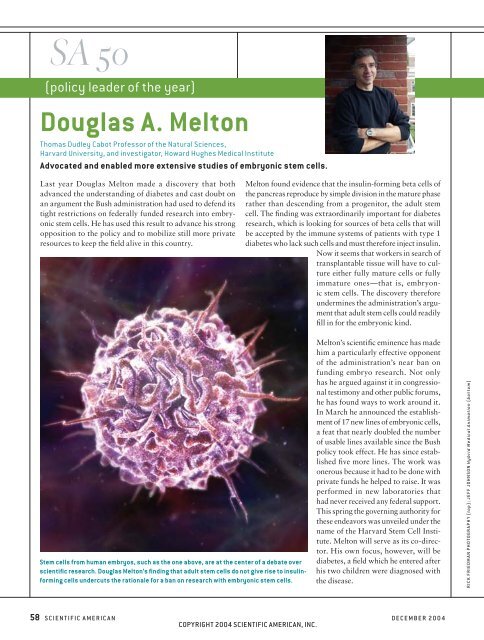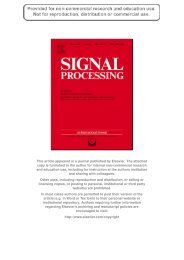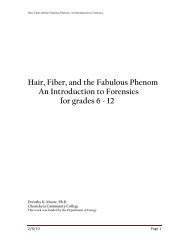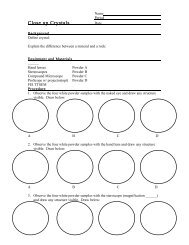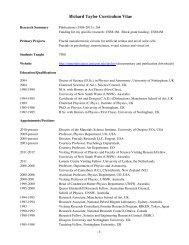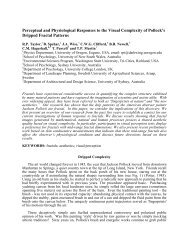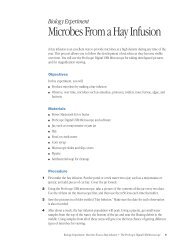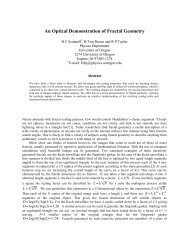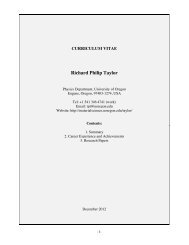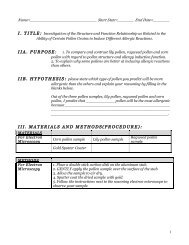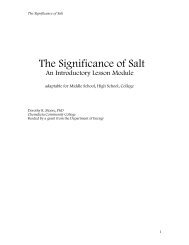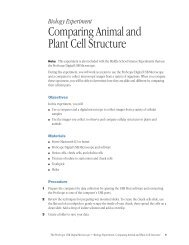December 2004 - Materials Science Institute - University of Oregon
December 2004 - Materials Science Institute - University of Oregon
December 2004 - Materials Science Institute - University of Oregon
You also want an ePaper? Increase the reach of your titles
YUMPU automatically turns print PDFs into web optimized ePapers that Google loves.
SA 50<br />
(policy leader <strong>of</strong> the year)<br />
Douglas A. Melton<br />
Thomas Dudley Cabot Pr<strong>of</strong>essor <strong>of</strong> the Natural <strong>Science</strong>s,<br />
Harvard <strong>University</strong>, and investigator, Howard Hughes Medical <strong>Institute</strong><br />
Advocated and enabled more extensive studies <strong>of</strong> embryonic stem cells.<br />
Last year Douglas Melton made a discovery that both<br />
advanced the understanding <strong>of</strong> diabetes and cast doubt on<br />
an argument the Bush administration had used to defend its<br />
tight restrictions on federally funded research into embryonic<br />
stem cells. He has used this result to advance his strong<br />
opposition to the policy and to mobilize still more private<br />
resources to keep the fi eld alive in this country.<br />
Stem cells from human embryos, such as the one above, are at the center <strong>of</strong> a debate over<br />
scientifi c research. Douglas Melton’s fi nding that adult stem cells do not give rise to insulinforming<br />
cells undercuts the rationale for a ban on research with embryonic stem cells.<br />
Melton found evidence that the insulin-forming beta cells <strong>of</strong><br />
the pancreas reproduce by simple division in the mature phase<br />
rather than descending from a progenitor, the adult stem<br />
cell. The fi nding was extraordinarily important for diabetes<br />
research, which is looking for sources <strong>of</strong> beta cells that will<br />
be accepted by the immune systems <strong>of</strong> patients with type 1<br />
diabetes who lack such cells and must therefore inject insulin.<br />
Now it seems that workers in search <strong>of</strong><br />
transplantable tissue will have to culture<br />
either fully mature cells or fully<br />
immature ones—that is, embryonic<br />
stem cells. The discovery therefore<br />
undermines the administration’s argument<br />
that adult stem cells could readily<br />
fi ll in for the embryonic kind.<br />
Melton’s scientifi c eminence has made<br />
him a particularly effective opponent<br />
<strong>of</strong> the administration’s near ban on<br />
funding embryo research. Not only<br />
has he argued against it in congressional<br />
testimony and other public forums,<br />
he has found ways to work around it.<br />
In March he announced the establishment<br />
<strong>of</strong> 17 new lines <strong>of</strong> embryonic cells,<br />
a feat that nearly doubled the number<br />
<strong>of</strong> usable lines available since the Bush<br />
policy took effect. He has since established<br />
fi ve more lines. The work was<br />
onerous because it had to be done with<br />
private funds he helped to raise. It was<br />
performed in new laboratories that<br />
had never received any federal support.<br />
This spring the governing authority for<br />
these endeavors was unveiled under the<br />
name <strong>of</strong> the Harvard Stem Cell <strong>Institute</strong>.<br />
Melton will serve as its co-director.<br />
His own focus, however, will be<br />
diabetes, a fi eld which he entered after<br />
his two children were diagnosed with<br />
the disease.<br />
58 SCIENTIFIC AMERICAN DECEMBER <strong>2004</strong><br />
COPYRIGHT <strong>2004</strong> SCIENTIFIC AMERICAN, INC.<br />
RICK FRIEDMAN PHOTOGRAPHY (top); JEFF JOHNSON Hybrid Medical Animation ( bottom)


